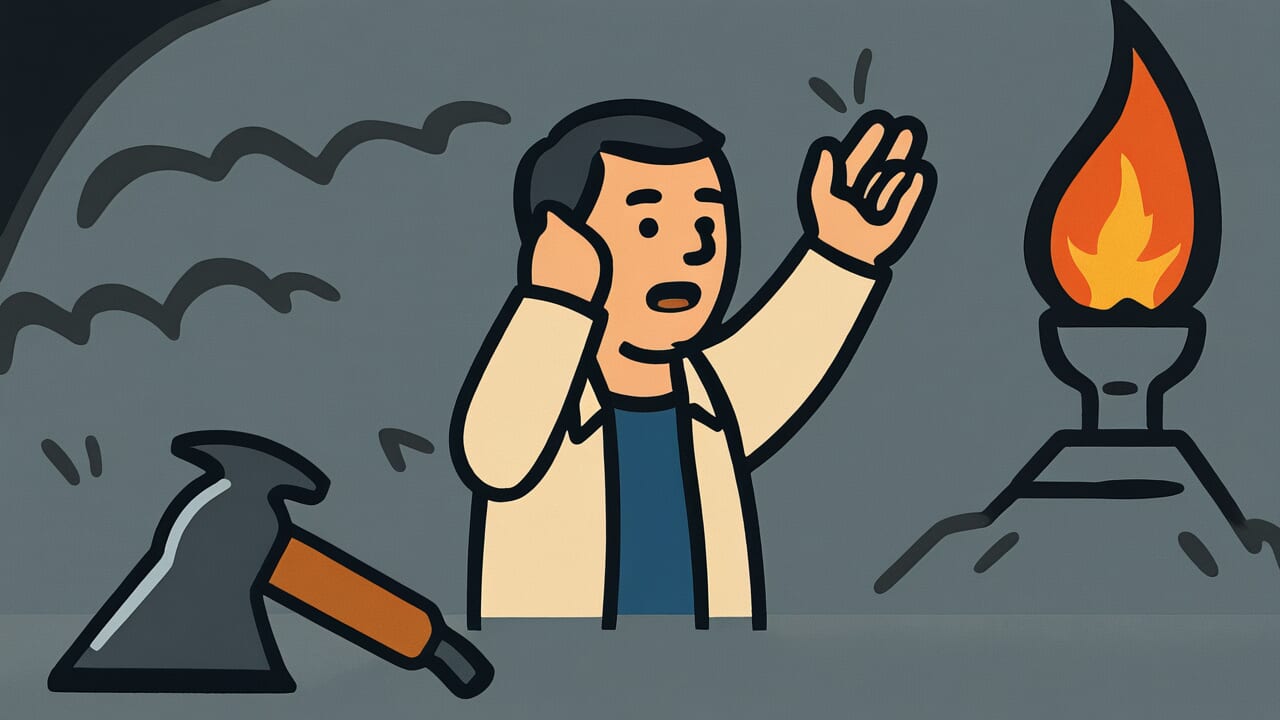How to Read “Begging for fire is not as good as getting a flint”
Hi wo kou wa hiuchi wo toru ni shikazu
Meaning of “Begging for fire is not as good as getting a flint”
This proverb means it’s better to prepare things yourself than to rely on others. Asking for help when you’re in trouble is one option. But you become dependent on other people’s schedules and situations.
If you prepare what you need in advance, you can act on your own judgment and timing. You’re not at the mercy of someone else’s availability or willingness to help.
People use this saying when teaching the importance of preparation. It also warns against relying too easily on others. The proverb appears in contexts about self-reliance and personal responsibility.
Today, this wisdom applies beyond physical preparation. It includes gaining knowledge and skills. Instead of always asking someone when you’re stuck, develop the ability to research and solve problems yourself. That’s what true independence means.
Origin and Etymology
This proverb likely comes from the ancient Chinese philosophical text “Huainanzi.” That book contains a passage saying “Asking others for fire is not as good as getting a flint.” This idea traveled to Japan and took root in the culture.
“Hiuchi” means flint stone. From ancient times through the early modern period, people struck flint against steel to create sparks. These sparks would ignite tinder and create fire.
The tool was small and easy to carry. You could make fire anytime, anywhere.
“Begging for fire” means visiting someone’s house to get burning embers. In old times, people tried to keep their hearth fires burning continuously. But sometimes the fire would go out.
Going to a neighbor’s house for fire was troublesome. If they weren’t home or the weather was bad, you couldn’t get fire at all.
This proverb grew from such everyday experiences. It teaches that having your own tools is more reliable than depending on others’ goodwill. Using fire as an example, it explains the importance of self-reliance and preparation. This is deeply practical wisdom.
Interesting Facts
Flint stones were essential items for Japanese people until the Edo period. Travelers always carried them when going on journeys. People used them to light tobacco pipes or lamps when away from home.
Some samurai had fire-starting tools built into their sword guards. They were always prepared to make fire whenever needed.
The character for “hiuchi” means “fire-starting tool.” In ancient China, there were two types. “Wood flint” created fire by rubbing wood together. “Stone flint” used stones.
Japan mainly adopted the stone flint method. This became widespread as the fire-striking stone. People used this tool for over a thousand years, until matches became common in the Meiji era.
Usage Examples
- Disaster preparedness follows the principle “begging for fire is not as good as getting a flint”—you should prepare supplies in advance
- You seem to think you can just ask people when you’re stuck, but remember “begging for fire is not as good as getting a flint”
Universal Wisdom
This proverb offers deep insight into the balance between independence and dependence. Humans are social creatures who live by helping each other. But excessive dependence weakens us.
Why has this saying been passed down for so long? Because humans have an instinct to take the easy path. Asking someone when you need something seems easier than preparing yourself.
But our ancestors understood something important. Quick-fix dependence ultimately makes you less free.
Relying on others means putting your fate in their hands. You depend on their time, their convenience, their mood. This might seem like valuing relationships. But it’s also giving up your own agency.
Preparation isn’t just being cautious. It’s an expression of your will to control your own life.
This proverb contains ideas about human dignity. Having the power to handle your own affairs gives you confidence. It brings true freedom.
Interestingly, truly independent people are often the best at helping others. When you’re self-sufficient, you can give from a place of strength, not desperation.
When AI Hears This
Looking at borrowing fire versus owning flint through information theory reveals a critical difference. It’s about “information source entropy”—where you place uncertainty.
When borrowing fire, your result depends completely on the other person’s state. The probability they’re home, have fire, and will lend it to you matters. If each is 80 percent, your success rate drops to 0.8×0.8×0.8, about 51 percent.
In information theory, such externally dependent systems have low “channel capacity.” They’re vulnerable to noise and interference. Worse, you can’t control this entropy.
Owning flint means possessing the “algorithm” for generating fire. With the necessary inputs—stone and technique—you get output without external uncertainty. Information theory calls this “source coding.” You can encode and generate the information called fire yourself.
Modern cloud service dependence has the same structure. When your internet connection—”someone else’s fire”—cuts out, you’re helpless.
This proverb recognized the risk of externalizing information-generation ability. It understood this over 2,000 years before information theory was born.
Lessons for Today
For us living today, this proverb sends a warm message: “Develop the power to solve things yourself.” In our convenient age, we quickly ask others or rely on services. But that won’t build real capability.
What matters is developing habits of researching and thinking for yourself when stuck. It takes time at first. But the knowledge and skills you gain accumulate inside you. They become your personal treasure that no one can take away.
Of course, you don’t need to handle everything alone. This proverb doesn’t teach isolation. It teaches the importance of having basic preparation before engaging with others.
When you have your own strength, you can help people in trouble. You can cooperate as equals.
Why not start today? Even with small things, try researching yourself, preparing yourself, doing it yourself. That accumulation will make you truly free.



Comments